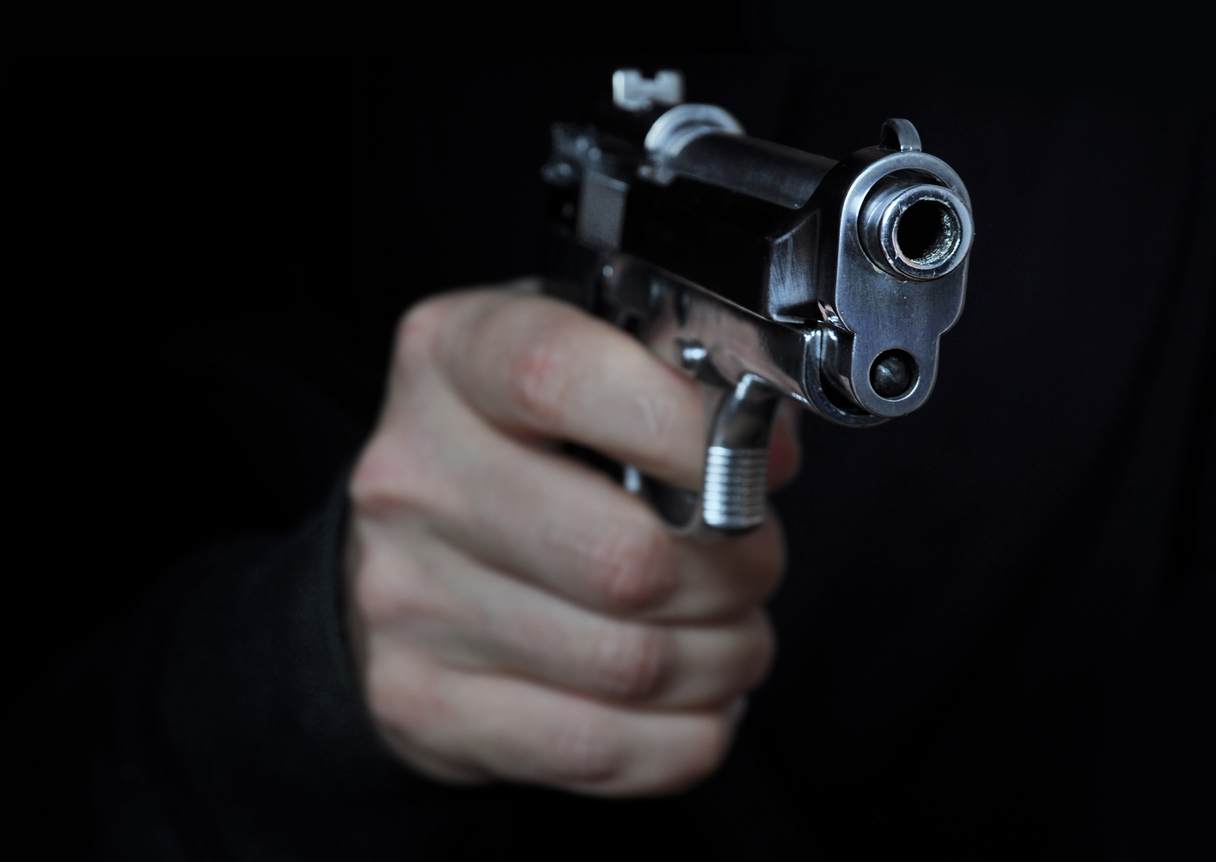
The Second Amendment of the United States Constitution gives Americans the right to bear arms. For many people, this right represents a fundamental aspect of personal freedom and self-defense. In Maryland, however, there are certain laws and regulations that individuals must follow to legally own and use firearms. Violating these laws can lead to serious weapons charges, which can have significant consequences for your freedom and future. At, Alpert Schreyer Criminal Defense Attorneys, we are here to guide you through the legal process and help you navigate the complexities of your case.
Understanding Second Amendment rights and how they relate to weapons charges in Maryland is important for anyone who owns or plans to own a firearm. While the Constitution protects the right to bear arms, each state, including Maryland, has the authority to regulate the use, ownership, and sale of firearms within its borders. In Maryland, this regulation is extensive and strict, so it’s essential to be informed about how these laws work to avoid getting into legal trouble.
Second Amendment Rights in Maryland
The Second Amendment was written to ensure that people have the right to defend themselves. The amendment has been interpreted in various ways over the years, leading to differing opinions on the scope of this right. Maryland follows federal law when it comes to the Second Amendment, but the state has its own laws governing the possession, use, and purchase of firearms.
In Maryland, individuals who want to own a firearm must go through a background check. This applies whether you are buying a gun from a store or a private seller. The background check ensures that the person buying the firearm is legally allowed to do so. Maryland also requires a Handgun Qualification License (HQL) for people who want to buy a handgun. This means that you must complete a safety course and meet other requirements before being able to legally own a handgun in the state.
While the Second Amendment protects your right to own firearms, Maryland has additional laws that place restrictions on who can own guns. For example, individuals who have been convicted of certain crimes, including felonies, domestic violence offenses, or serious drug-related charges, are prohibited from owning firearms. The state also restricts gun ownership for individuals with certain mental health conditions. Understanding these restrictions is key to ensuring that you remain within the law while exercising your Second Amendment rights.
Types of Weapons Charges in Maryland
Weapons charges in Maryland can result from various types of actions, and they often come with harsh penalties. The state enforces strict gun laws, so it is important to know what can lead to weapons charges. Some common types of weapons charges in Maryland include illegal possession of a firearm, carrying a concealed weapon without a permit, and possession of firearms by prohibited individuals.
Illegal possession of a firearm occurs when someone owns or carries a gun without the proper legal documentation or violates restrictions on gun ownership. For instance, if a person who has been convicted of a felony is found to possess a firearm, they can be charged with illegal possession. Similarly, carrying a concealed weapon without a permit is also against the law in Maryland. The state requires that individuals obtain a permit before carrying a concealed handgun. If you do not have this permit and are caught with a concealed weapon, you can face serious legal consequences.
Another common weapons charge involves possessing a firearm while committing a crime. In Maryland, if someone uses a gun while committing another offense, such as robbery or assault, the penalties can be severe. The use of a weapon in a crime increases the seriousness of the charges and can result in longer prison sentences and higher fines. Even if the firearm was not used but was simply in possession during the commission of a crime, this can still lead to enhanced penalties.
Consequences of Weapons Charges in Maryland
Being charged with a weapons offense in Maryland can have life-altering consequences. Weapons charges can be classified as misdemeanors or felonies, depending on the circumstances, and the penalties vary based on the severity of the charge. Convictions can lead to prison time, large fines, and a permanent criminal record.
For instance, illegal possession of a firearm is often considered a misdemeanor, but it can still result in up to three years in prison and significant fines. If the possession occurred during the commission of a felony, the penalties can be even more severe. Felony weapons charges carry harsher penalties, and individuals convicted of these offenses may face extended prison sentences, sometimes up to 20 years or more, especially if the firearm was used in the commission of a violent crime.
In addition to criminal penalties, a weapons charge can affect your personal and professional life. A criminal record can make it harder to find employment, secure housing, and qualify for certain types of professional licenses. Furthermore, individuals convicted of weapons charges may permanently lose their Second Amendment rights and be prohibited from owning firearms in the future.
Defending Against Weapons Charges
If you are facing weapons charges in Maryland, it is crucial to take immediate action to protect your rights and your future. Defending against weapons charges can be complicated, as these cases often involve both state and federal laws. However, there are several potential defenses that can be used to fight weapons charges.
One common defense is challenging the legality of the search or seizure that led to the discovery of the firearm. Under the Fourth Amendment, individuals are protected from unreasonable searches and seizures. If the police obtained evidence of a firearm without following proper procedures, that evidence may be excluded from the case. This can weaken the prosecution’s case and potentially lead to the charges being dismissed.
Another defense might involve showing that the accused individual had legal ownership of the firearm and was in compliance with Maryland’s gun laws. For example, if someone is charged with carrying a concealed weapon without a permit, but they actually had a valid permit that was not recognized by law enforcement at the time, this could be a valid defense.
In some cases, individuals facing weapons charges may be able to negotiate a plea deal with the prosecution. A plea deal involves pleading guilty to a lesser charge in exchange for reduced penalties. This can be a beneficial option for individuals who may not be able to fight the charges in court but want to avoid the most severe penalties.
Maryland’s Concealed Carry Laws
Maryland’s concealed carry laws are among the strictest in the country. The state has a “may-issue” policy, meaning that authorities have discretion over whether to issue concealed carry permits. Even if an individual meets the basic legal requirements, the state may still deny a permit if they believe it is not in the interest of public safety.
To obtain a concealed carry permit in Maryland, applicants must demonstrate a “good and substantial reason” for carrying a handgun. This requirement goes beyond the desire for personal protection and often requires individuals to show evidence of a specific threat or risk to their safety. Additionally, applicants must pass a thorough background check, complete firearms training, and meet other legal requirements.
If someone is caught carrying a concealed weapon without a permit, they can face serious charges. It is important to understand Maryland’s concealed carry laws and to ensure that you have the proper permits if you intend to carry a handgun in the state.
Federal and State Interplay in Weapons Charges
Weapons charges in Maryland often involve a complex interplay between state and federal laws. In some cases, individuals may face both state and federal charges for the same offense. Federal firearms laws are enforced by agencies such as the Bureau of Alcohol, Tobacco, Firearms, and Explosives (ATF), and violations of federal gun laws can result in additional penalties beyond what is imposed under Maryland law.
For instance, federal law prohibits certain individuals from owning or possessing firearms, such as convicted felons, individuals with restraining orders related to domestic violence, and those with certain mental health conditions. If someone violates these federal restrictions, they can face federal charges in addition to any state charges they may be facing in Maryland. It is important to understand that weapons charges can have far-reaching consequences beyond state law, and federal authorities may become involved in certain cases.
Facing weapons charges in Maryland can be a daunting and overwhelming experience. The laws surrounding firearms and the consequences of violating them are serious. If you or a loved one is facing a weapons charge, it is critical to seek the guidance of a skilled attorney who can help you navigate the legal system and protect your rights.
At Alpert Schreyer Criminal Defense Attorneys, we understand the complexities of Maryland’s gun laws and have extensive experience defending clients against weapons charges. Our team is committed to providing strong legal representation and will work tirelessly to achieve the best possible outcome for your case. Contact Alpert Schreyer Criminal Defense Attorneys today to learn more about how we can help you fight your weapons charges and safeguard your future.
Contact the Criminal Defense Attorneys at Alpert Schreyer Criminal Defense Attorneys in Maryland for Help Today
For more information, contact Alpert Schreyer Criminal Defense Attorneys to schedule a confidential consultation with a criminal defense attorney. Our team is available to assist clients in Lanham, Frederick, Rockville, Waldorf, Annapolis, and Lexington Park, Maryland.
We proudly serve Prince George’s County, Frederick County, Montgomery County, Charles County and the surrounding areas. Visit our law offices at:
Alpert Schreyer Criminal Defense Attorneys – Lanham Office
4600 Forbes Blvd Ste 201 Lanham, MD 20706
(301) 262-7005
Available 24/7
Alpert Schreyer Criminal Defense Attorneys – Frederick Office
25 E Patrick St #200 Frederick, MD 21701
(301) 381-1993
Available 24/7
Alpert Schreyer Criminal Defense Attorneys – Rockville Office
11140 Rockville Pike 550-J Rockville, MD 20852
(301) 364-3195
Available 24/7
